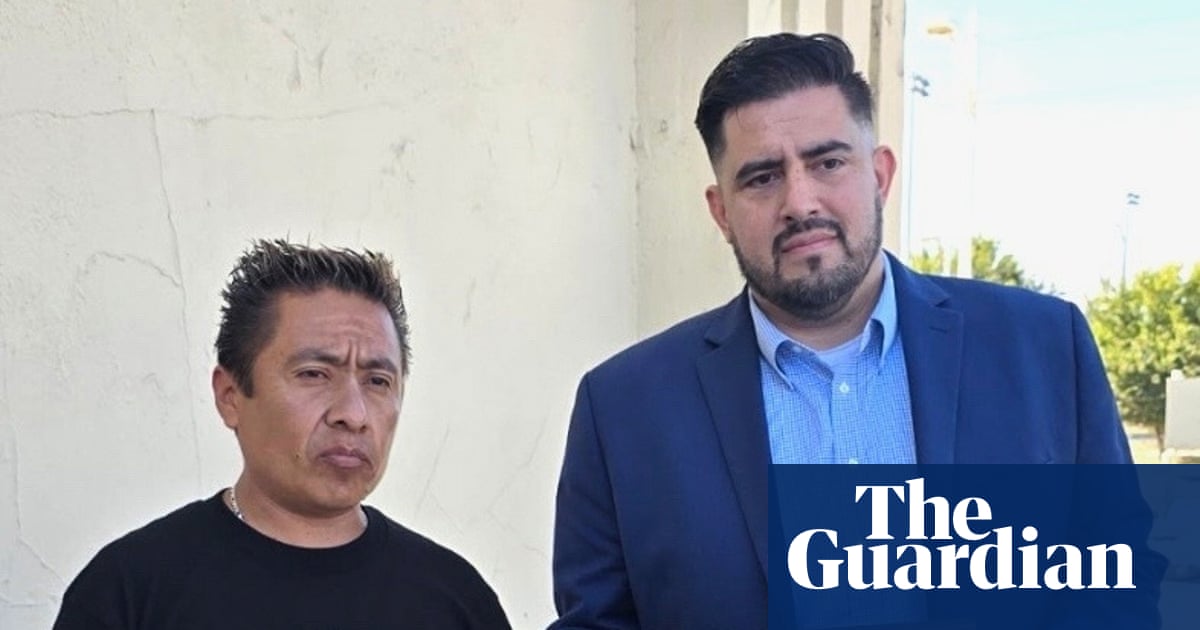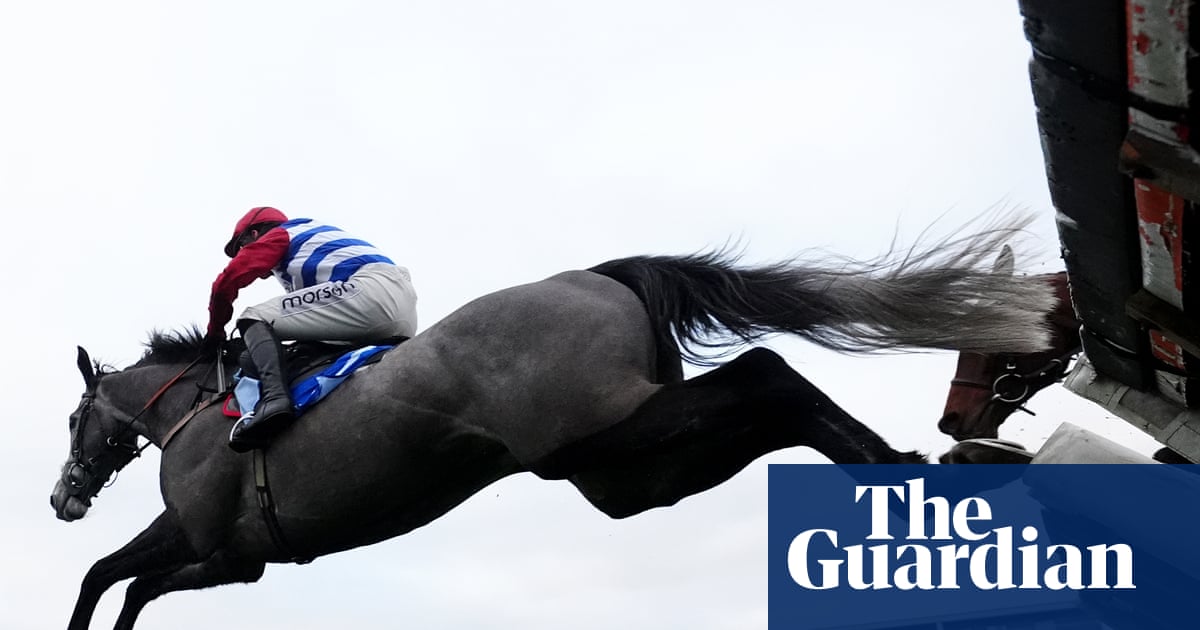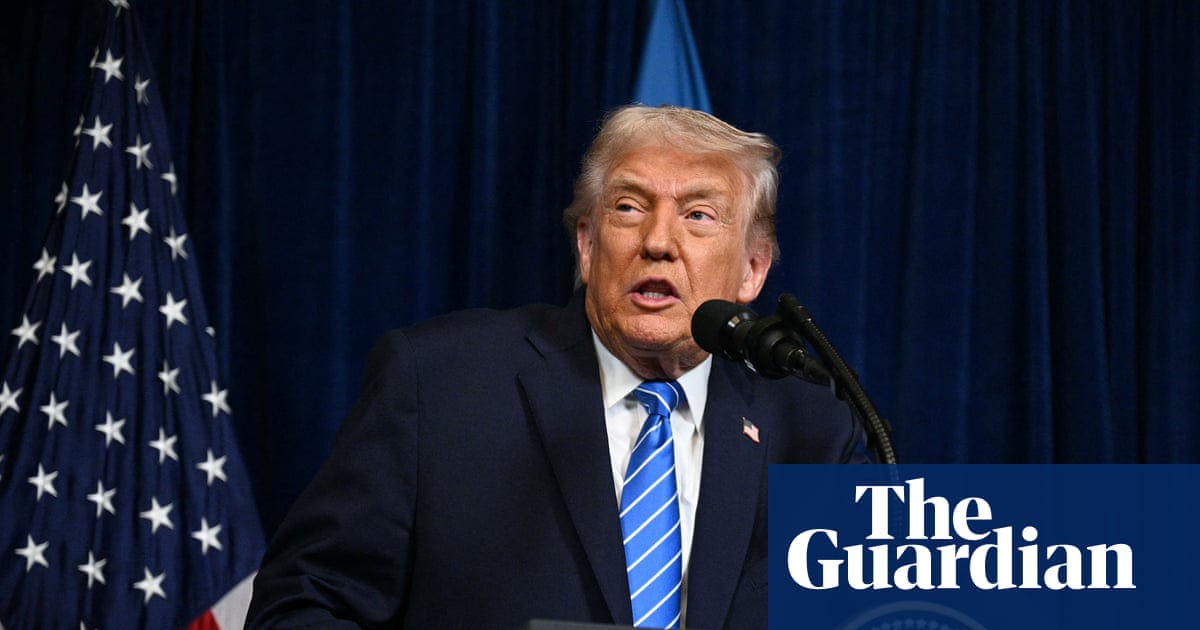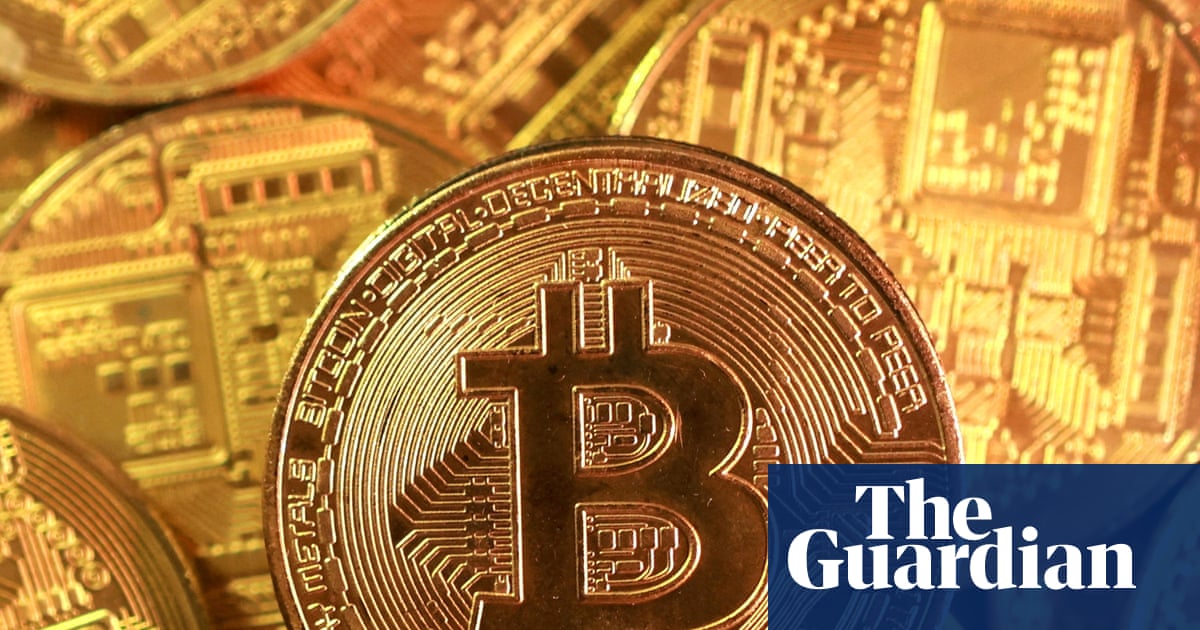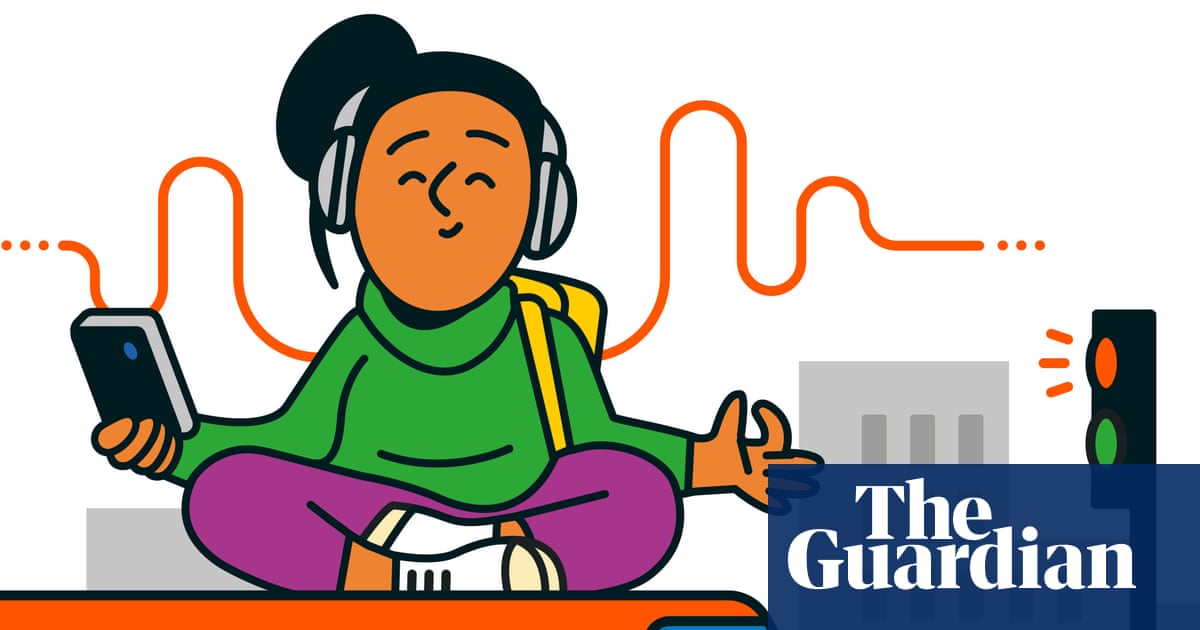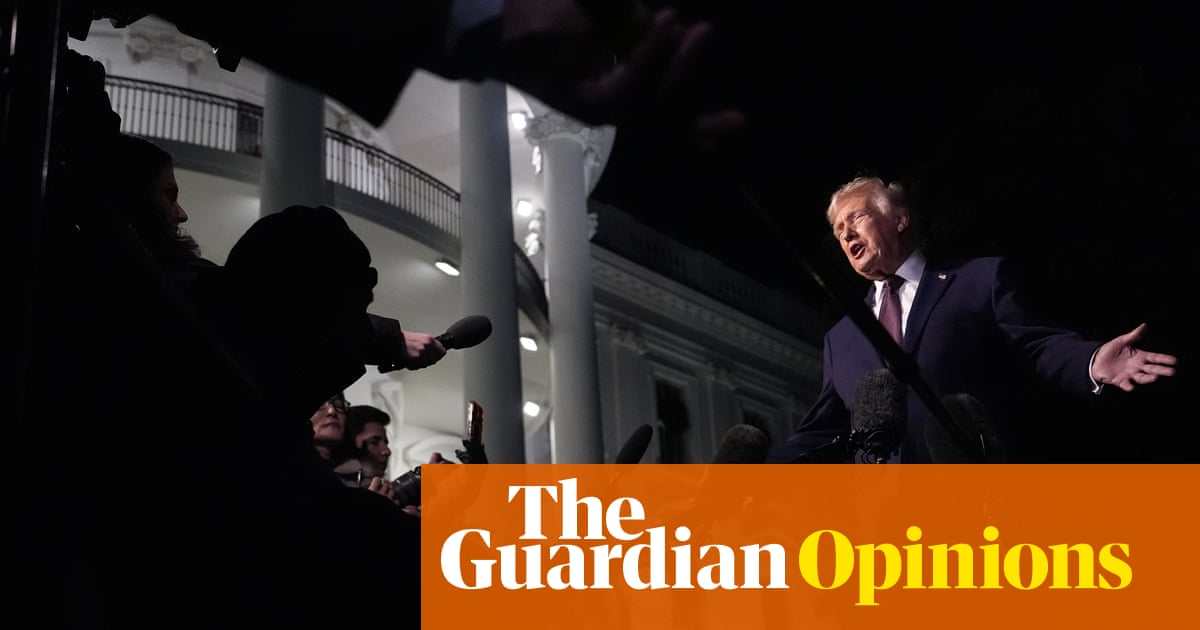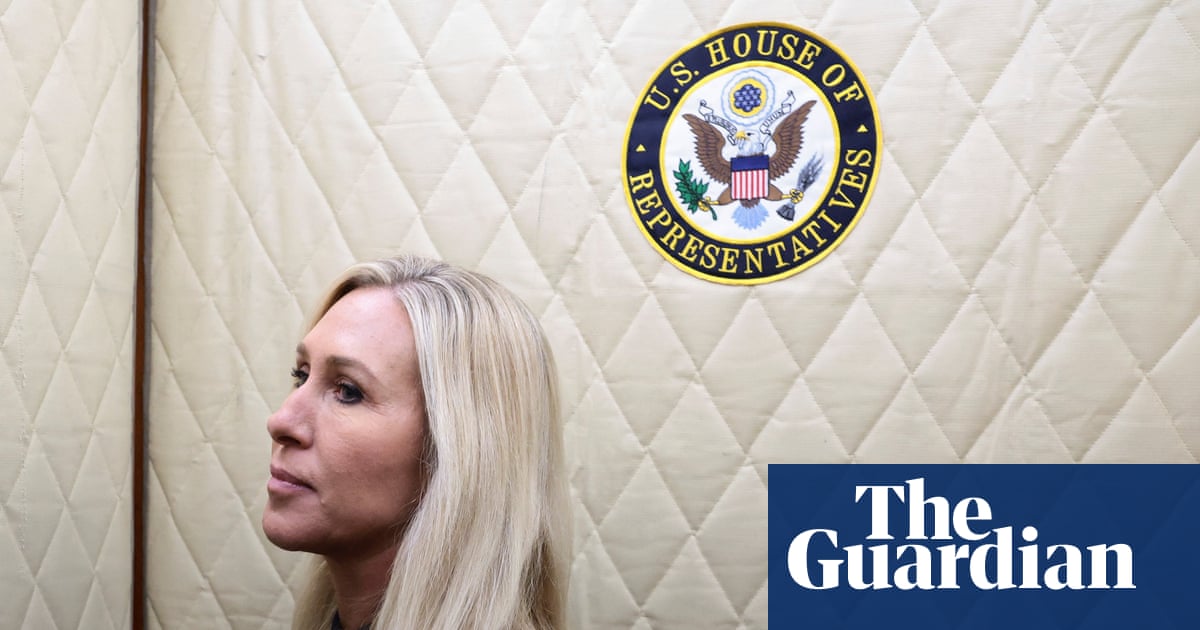If nothing else, the Trump administration’s assault on late-night talkshows is creating some proper old-school water cooler TV. The first thing I did this morning was fire up YouTube and watch Jon Stewart’s monologue on last night’s Daily Show. Stewart usually only does the Monday edition, but he had made an exception in the wake of ABC’s decision, at the encouragement of the Federal Communications Commission and its Trump acolyte head, Brendan Carr, to indefinitely sideline Jimmy Kimmel. Stewart’s midweek appearance, then, was an event – and one that didn’t disappoint.
Set to the images of soldiers saluting and American flags billowing in the wind, the opening voiceover trumpeted the “all-new, government-approved Daily Show, with your patriotically obedient host Jon Stewart”. Cue Stewart, his usually cool blue set switched out for Mar-a-Lago gold, his eyes nervously darting, launching into 20 minutes of mock-obsequious toadying to “our great father”, praising his state visit to the UK, redrawing maps to reflect Trump’s spotty knowledge of international affairs – Azerbaijan is now officially “Aberbaijan”, and it’s at war with Albania – and frantically shushing the studio audience whenever they laughed at or booed the president (“Shut up, you’re going to blow this for us!”)
Stewart, of course, was not alone in responding in double-quick time to the attack on his peer. All of late-night was at it. Stephen Colbert, already in some eyes a victim of Trumpian overreach, revived his old hyper-patriotic persona on The Colbert Report as part of a larger defence of Kimmel. Seth Meyers, never one to hold his tongue, waded in too. Even the hair-ruffler himself, Jimmy Fallon – long criticised for his mealy mouthed response to the political moment – chimed in in his own underpowered way, defending Kimmel and aiming some extremely gentle digs at the president. Why wouldn’t he? Fallon’s previously cautious approach doesn’t seem to have gotten him anywhere: Trump has called on him, along with Meyers, to be cancelled next.
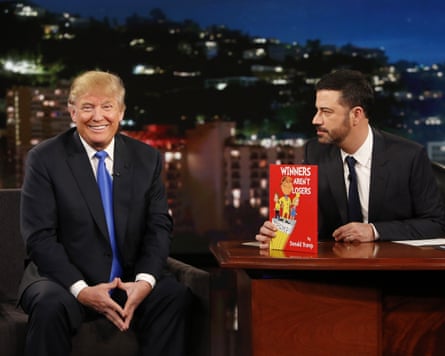
All of which begs the question: how did American talkshow hosts, historically more used to yukking it up with movie stars or looking nervous while wild animals clambered all over them, acquire such political importance that presidents now use the instruments of state to shut them up? When did the late-night desk become such a battleground?
Certainly things have progressed a bit from the days of Johnny Carson. The King of Late Night didn’t entirely banish politics from his Tonight Show – he, from time to time, had politicians on as guests (Bill Clinton, saxophone in tow, used a Carson appearance to rebound from a disastrous speech at the 1988 Democratic convention) and cheerfully knitted current affairs into his monologue – but he remained wary of it throughout his career. “TV is probably not the ideal place to discuss serious issues,” he told Kenneth Tynan in a celebrated 1978 profile for the New Yorker. “It’s much better to read about them.” Carson’s squeamishness around this stuff stood in stark contrast to his competitor Dick Cavett, whose show would launch headlong into sometimes contentious political discussion. Naturally, Carson trounced him in the ratings.
If Carson codified late-night TV’s softly, softly approach to politics, his heirs didn’t exactly reverse course: Jay Leno, who took over the Tonight Show from Carson, practised a similar studied neutrality (a world-champion ratings chaser, he was well aware that taking a side means losing half your audience); while Leno’s rival David Letterman was often too busy deconstructing TV conventions to bother with grandstanding. Still, there were some topics the pair found unavoidable, or perhaps irresistible: from 1 January to 10 September 1998, according to an Observer story at the time, the pair, along with fellow late-night hosts Conan O’Brien and Bill Maher, made a total of 1,401 jokes about the Clinton-Lewinsky affair alone.
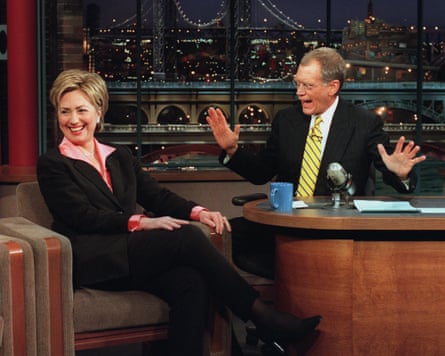
In hindsight, many of those jokes were pretty grim and sexist (Letterman has spoken of his regret at aiming so many of them at Lewinsky), but at the time they contributed to a sense that late-night TV held real weight when it came to politics: 47% of people aged between 18 and 29 got their news from late-night TV shows, according to a 2000 poll. Central to that was the emergence of Stewart’s Daily Show, which used the traditional signifiers of late-night TV – big wooden desk, host in suit and tie, celebrity guests – to do something more politically strident. Mining a similar furrow, though from a slightly different political leaning, was Bill Maher with his show Politically Incorrect, famously cancelled by ABC after an off-colour comment about 9/11 and replaced by a bro-ish – and what the network hoped would be a far less contentious – host called … Jimmy Kimmel.
All of this, though, didn’t mean late-night TV suddenly became a politics fest. In the 2010s the genre was instead synonymous with James Corden’s Carpool Karaoke and Fallon’s Lip Sync Battle, inoffensive entertainment segments designed to rack up online views to help stem the bleeding of TV viewers. What changed things was Trump, a political story so all-consuming, like Clinton-Lewinsky before it, that it was impossible to avoid in late-night monologues, and a figure that just begged to be satirised.
after newsletter promotion
And, in an atomised TV landscape, where giant audiences are no longer the norm (for anything other than sport, that is), the pressure to follow Jay Leno’s credo and aim for the middle had lessened: instead of casual viewers, hosts could aim for a smaller, but more energised and loyal audience who bought into their worldview (a worldview that detractors would say was unambiguously liberal). Of course, lower ratings also make it easier to cancel your show, especially one that is politically unhelpful at a time when, say, your parent corporation is trying to get government approval to merge with another corporation.
Late-night is particularly vulnerable in that regard, but in gunning for it the Trump administration has afforded it a strange amount of weight, even power. Comedians are “the banana peel in the coalmine”, Stewart said in a 2022 Mark Twain prize acceptance speech that I’ve seen shared around a lot online in the past couple of days. “Comedians are the ones who get sent away first.” There are plenty of precedents for that. For the time being though, Stewart and his tribe – unlike the networks who air them – aren’t ready to be silenced.
If you want to read the complete version of this newsletter please subscribe to receive The Guide in your inbox every Friday

 3 months ago
49
3 months ago
49

